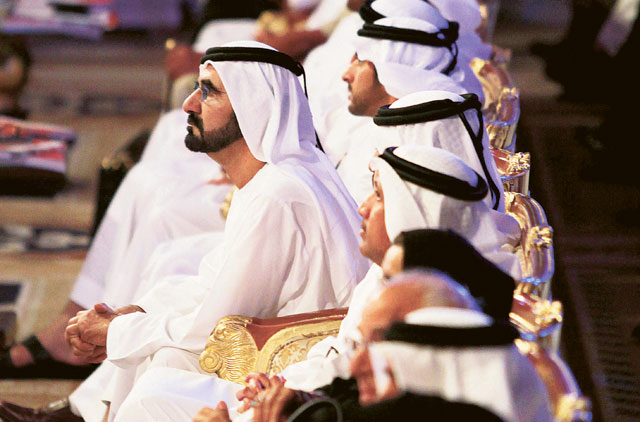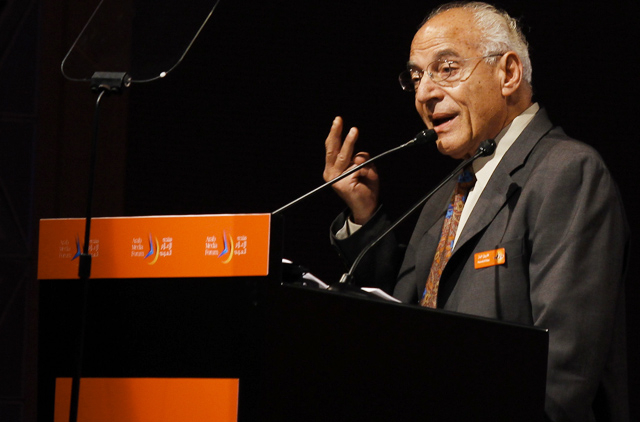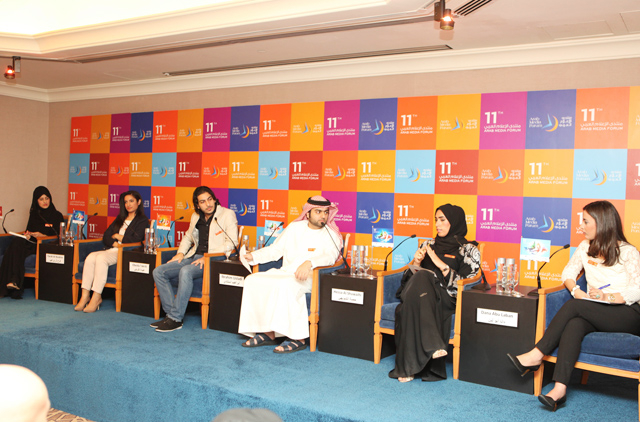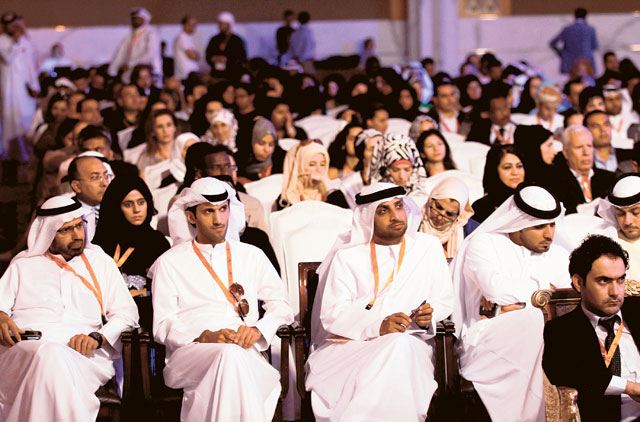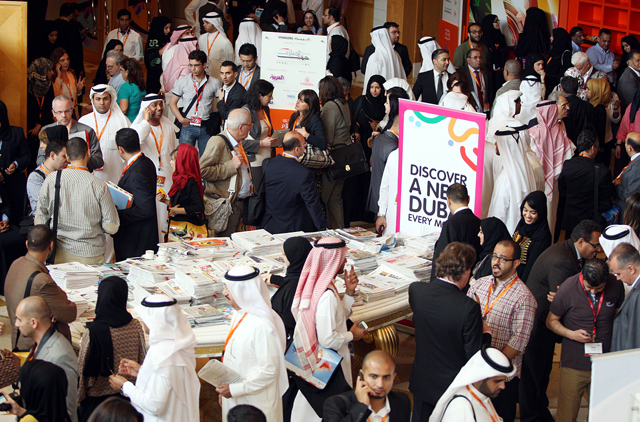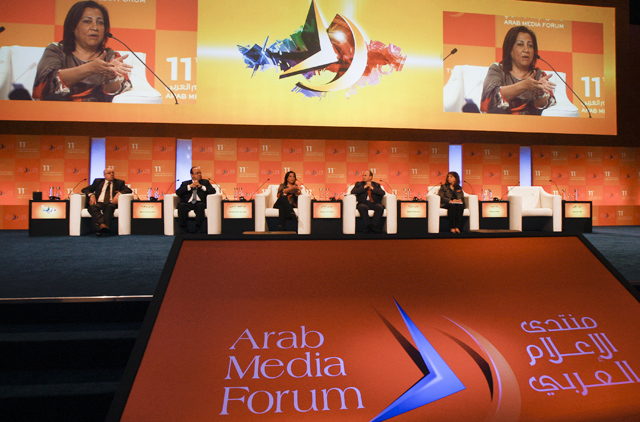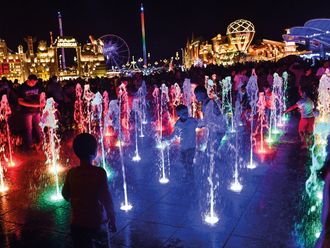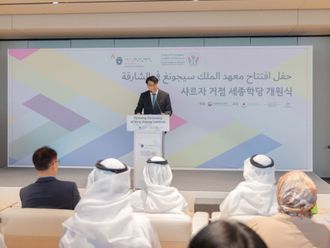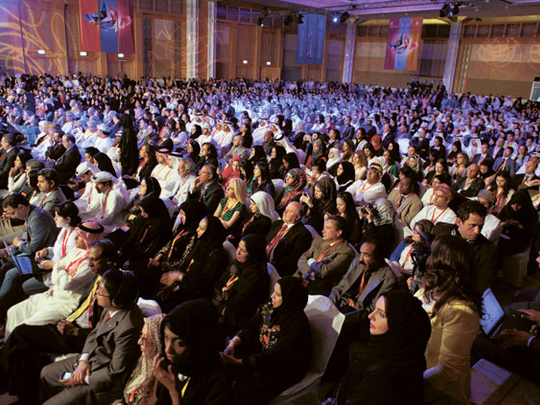
Dubai True to its theme titled ‘Arab Media: Exposure and Transition', the 11th Arab Media Forum (AMF) 2012 opened yesterday with a message that highlighted the pressing issues faced by the media landscape in the region due to social media penetration.
Inaugurated by His Highness Shaikh Mohammad Bin Rashid Al Maktoum, Vice-President and Prime Minister of the UAE and Ruler of Dubai, in the presence of Shaikh Hamdan Bin Mohammad Bin Rashid Al Maktoum, Crown Prince of Dubai, and Shaikh Majid Bin Mohammad Bin Rashid Al Maktoum, Chairman of Dubai Culture, the Forum's message was a solutions-driven one. The subtext of the message was that the equation between social and traditional media platforms is more complementary than confrontational, and measures should be taken to work together with concerns of censorship and credibility.
In the introductory speech, the 11th edition was termed a "testimony" to the vital role of the media in the Arab world that is going through a critical phase, especially for the youth. The keynote address by renowned Arab professor and scientist Dr Farouk Al Baz stressed the media's role in boosting the morale of Arab communities in light of political and social movements in the Arab region. "The Arab world is witnessing a critical phase: either we will emerge strong or divided." he said. "The media plays a vital role in this atmosphere."
A nation of culture
Dr Al Baz also said there was a need to educate more than 120 million Arabs who cannot read and to encourage youth participation in raising the standards of Arab language that will aid development. "We are a nation of culture, so how come there are people who cannot read? Teaching and learning the Arabic language has to be the top priority of the nation's agenda. The media should dedicate space to help people who want to learn the language."
Al Baz noted that his generation had largely failed to advance the Arab people. He specifically pointed out the failure to free Palestine, the failure to eradicate illiteracy, the failure to institute social justice and the failure to unify Arab countries. Poking fun at the Arab League, he said: "Now when they meet we wish they didn't meet."
Al Baz said the young generation had a huge responsibility and challenge in dealing with the transition from despotism to democracy, but he said he believed this generation would have the will and the tools to achieve it.
Speaker Dr Sulaiman Al Jasem, vice-president of Zayed University, echoed his sentiment on development stating: "The question of development remains at the centre of the Arab world and involves institutions at levels including governmental and educational. We need to ask: has the media taken up to the challenge of development? Was the media up to the events that have passed? Has the media helped push the wheels of development or was it burdened in its reactions and stayed behind?"
Dr Al Jasem added that people are proud of what Shaikh Mohammad represents in terms of the leadership model and his vision for comprehensive development in the country and the region as a whole.
Great challenges
"This is closely related to the topic of this forum. We have witnessed a rapid growth in media platforms and the shift towards social media, and we have also witnessed the opportunities they offer and the great challenges they pose," he said.
Organised by the Dubai Press Club (DPC), the event, under the umbrella theme ‘Arab Media: Exposure and Transition', headlined high-profile speakers and senior delegates representing local, regional and international media.
More than 2,000 people attended the first day of the two-day event that had three workshops and three sessions.
The ‘Twitter Stars and the Echo of Tweets' session had a big turnout. It was moderated by Nasser Al Sarami, head of media at Al Arabiya News Channel, and highlighted the overwhelming impact of Twitter in political and social settings.
— With input from Layelle Saad, GCC and Middle East Editor


